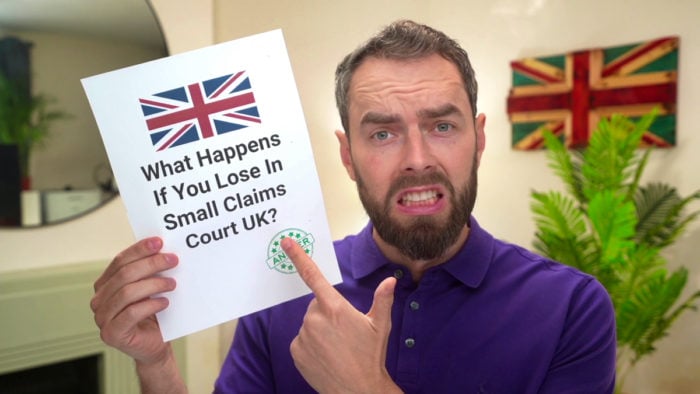What Happens If You Lose In Small Claims Court?
For free & impartial money advice you can visit MoneyHelper. We work with The Debt Advice Service who provide information about your options. This isn’t a full fact-find, some debt solutions may not be suitable in all circumstances, ongoing fees might apply & your credit rating may be affected.

For free & impartial money advice you can visit MoneyHelper. We work with The Debt Advice Service who provide information about your options. This isn’t a full fact-find, some debt solutions may not be suitable in all circumstances, ongoing fees might apply & your credit rating may be affected.
Are you having a tough time after losing in small claims court in the UK? Don’t worry; this article is here to help. Each month, we guide over 170,000 people on debt solutions, just like this.
In this article, we’ll explain:
- What small claims are and how the court works.
- The costs involved in going to small claims court.
- What happens if you ignore a small claims notice.
- How to deal with the legal fees of the winning party.
We understand how hard it can be. Sometimes, you may worry about being unable to pay for the judgement. We’ve been there, and we know what it feels like, which is why we’re here to give you the best advice possible. Let’s find out more about your options after losing in a small claims court in the UK.
What if I lose?

Does the losing party pay the claimant’s legal fees?
How a debt solution could help
Some debt solutions can:
- Stop nasty calls from creditors
- Freeze interest and charges
- Reduce your monthly payments
A few debt solutions can even result in writing off some of your debt.
Here’s an example:
Situation
| Monthly income | £2,504 |
| Monthly expenses | £2,345 |
| Total debt | £32,049 |
Monthly debt repayments
| Before | £587 |
| After | £158 |
£429 reduction in monthly payments
If you want to learn what debt solutions are available to you, click the button below to get started.
Remember, you can appeal the judge’s decision if you disagree with it. Appealing a small claims court decision is only possible within 21 days of the court’s decision.
There’s a fee involved, and you must also ask the court’s permission to lodge an appeal.
» TAKE ACTION NOW: Fill out the short debt form
How much does it cost?
If you need help with small claims court fees, you should apply for help. You may be eligible for a fee waiver if:
- You have low or no savings.
- You get benefits such as Jobseeker’s Allowance, Employment and Support Allowance, Income Support, Universal Credit, or Pension Credit.
- You’re on a low income.
You may also apply to get some or all of fees back if:
- You paid the fee in the last 3 months.
- You were eligible for help when you paid it.
How a debt solution could help
Some debt solutions can:
- Stop nasty calls from creditors
- Freeze interest and charges
- Reduce your monthly payments
A few debt solutions can even result in writing off some of your debt.
Here’s an example:
Situation
| Monthly income | £2,504 |
| Monthly expenses | £2,345 |
| Total debt | £32,049 |
Monthly debt repayments
| Before | £587 |
| After | £158 |
£429 reduction in monthly payments
If you want to learn what debt solutions are available to you, click the button below to get started.
What happens if you win and they don’t pay?
Thousands have already tackled their debt
Every day our partners, The Debt Advice Service, help people find out whether they can lower their repayments and finally tackle or write off some of their debt.

Natasha
I’d recommend this firm to anyone struggling with debt – my mind has been put to rest, all is getting sorted.
Reviews shown are for The Debt Advice Service.


